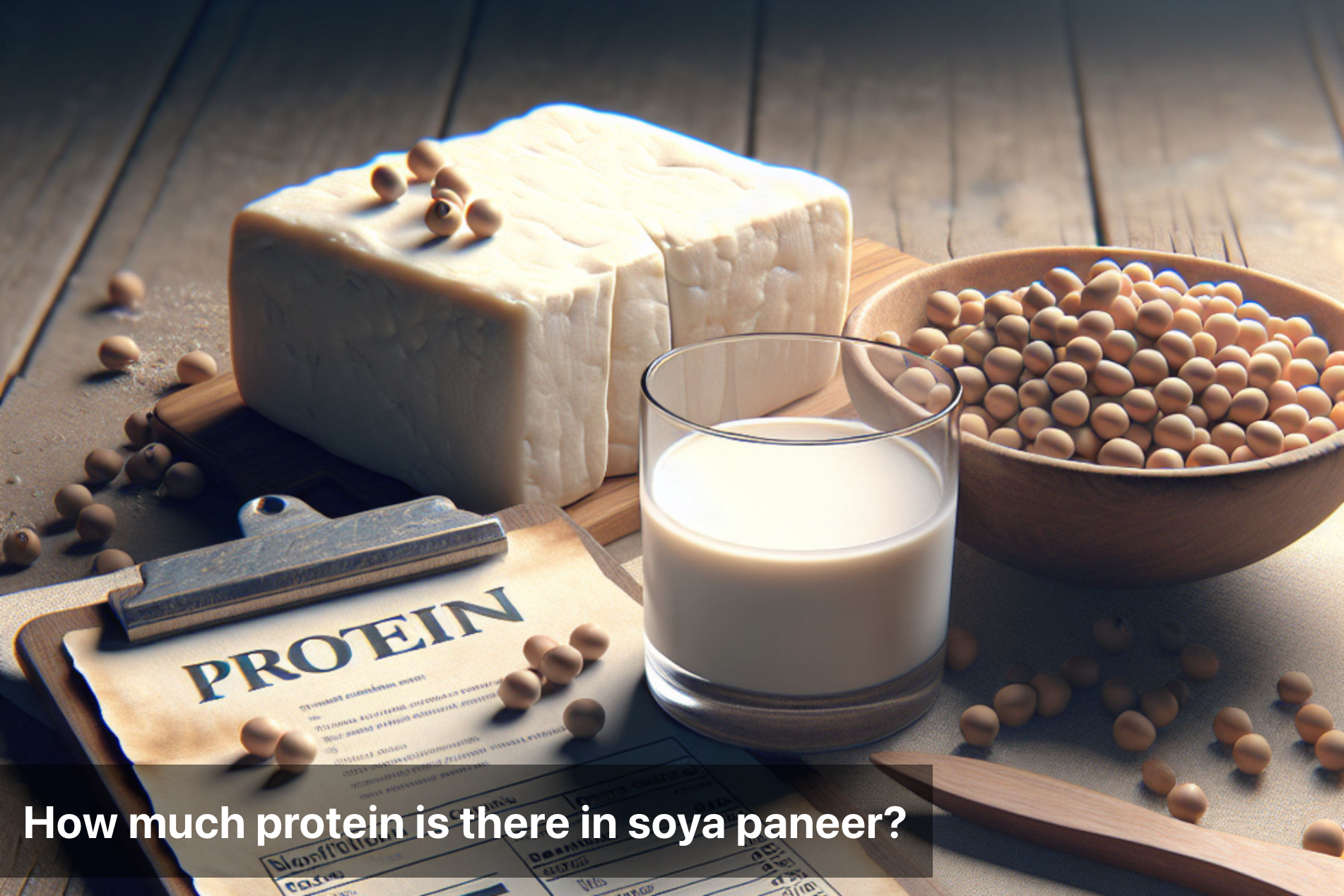
How much protein is there in soya paneer?
Soya paneer, also known as tofu, is a versatile plant-based protein source that is widely used in vegetarian and vegan diets. It is made from soy milk by coagulating the proteins and pressing them into solid blocks. Soya paneer is a popular meat substitute due to its high protein content and nutritional benefits.
One of the key features of soya paneer is its impressive protein content. It contains approximately 8 grams of protein per 100 grams, making it an excellent protein source for individuals looking to increase their protein intake. Additionally, soya paneer is low in saturated fat and cholesterol, making it a heart-healthy alternative to animal-based proteins.
Incorporating soya paneer into your diet can provide essential amino acids, iron, and calcium, which are vital for overall health and well-being. Its versatility allows it to be used in a variety of dishes, from stir-fries to smoothies, adding a nutritious boost to your meals.
Whether you are vegetarian, vegan, or simply looking to explore plant-based protein options, soya paneer can be a valuable addition to your diet. By understanding its nutritional benefits and protein content, you can make informed choices to support your dietary goals and overall health.

Nutrients Content in Soya Paneer
150 grams of soya paneer contains:
Protein |
30 g |
Carbohydrate |
8.4 g |
Dietary Fibre |
4.6 g |
Ash |
2.8 g |
Sugar |
0 g |
Fat |
16.5 g |
Cholesterol |
0 g |
Energy |
290 k cal |
Benefits of Consuming Soya Paneer for Protein Intake
Soya Paneer, also known as tofu, is a versatile and nutritious food that offers a wide range of benefits, especially when it comes to protein intake. With approximately 8 grams of protein in every 100 grams of soya paneer, it stands as a substantial plant-based protein source suitable for vegetarians and vegans looking to meet their daily protein requirements.
One of the key benefits of consuming soya paneer for protein intake is its completeness as a protein source. It contains all essential amino acids required by the body, making it comparable to animal-based proteins. This adequacy of amino acids aids in muscle building, repair, and overall growth.
Additionally, soya paneer is a great option for individuals with lactose intolerance or dairy allergies, offering a protein-rich alternative without compromising nutritional value. Its versatility allows for various culinary uses, from stir-fries to smoothies, making it an accessible protein option for a diverse range of diets.
Moreover, the high protein content in soya paneer promotes satiety, aiding in weight management and muscle maintenance. By incorporating soya paneer into your diet, you can enhance your protein intake while enjoying the numerous health benefits it offers.
Ways to Incorporate Soya Paneer into Your Diet
Soya paneer, also known as tofu, is a versatile and nutritious ingredient that can elevate your meals with a protein boost. Here are some simple yet effective ways to integrate this plant-based protein source into your diet:
Stir-fry Delight: Create a flavorful stir-fry by adding diced soya paneer to a mix of colorful veggies like bell peppers, broccoli, and snow peas. Toss them in a tangy soy sauce for a delicious and protein-packed meal.
Paneer Paratha: Make a protein-rich filling for your parathas by mashing soya paneer with spices like cumin, turmeric, and chili powder. Stuff this mixture into whole wheat dough and cook until golden brown for a satisfying and nutritious meal.
Smoothie Booster: Blend silken soya paneer with fruits like berries, bananas, and a splash of almond milk for a creamy and protein-packed smoothie. This refreshing drink makes for a perfect post-workout snack.
Salad Supreme: Toss cubed soya paneer into your salads along with fresh greens, cherry tomatoes, and a drizzle of balsamic vinaigrette. The addition of this protein-rich ingredient will take your salad to the next level.
By incorporating these tips and recipes into your meal planning, you can enjoy the protein benefits of soya paneer while adding variety and flavor to your diet.

Protein Content in Soya Paneer: A Plant-Based Perspective
Soya paneer, packing around 17-18 grams of protein per 100g, stands tall as a protein powerhouse, making it a fantastic meat alternative for vegetarians and vegans. With this impressive protein content, it can aid in muscle repair, maintenance, and overall growth, ensuring you meet your daily protein requirements effortlessly.
Moreover, soya paneer is not just about protein; it also offers a bounty of essential nutrients like iron, calcium, and antioxidants, which are crucial for maintaining optimal health. By including soya paneer in your meals, you not only boost your protein intake but also fortify your body with these vital nutrients.
Soya paneer is not just a food; it's a nutritional ally that can support your journey towards a balanced and wholesome diet. So, next time you're planning your meals, consider the protein-packed benefits of soya paneer and relish in its goodness for a healthier, more nourished you.
This Blog post is an initiative by Lo! Foods, to provide accurate and Nutritionist / Doctor approved information related to Health. Lo! Foods is India's leading brand for Everyday Functional Foods. Foods designed for specific Health conditions or Needs. Lo! Foods also runs India's largest range of Low Carb Healthy Cloud Kitchens, under the brand names of Lo!, ProteinChef, ATH (All Things Healthy) and DiabeSmart.















Leave a comment
Your email address will not be published.